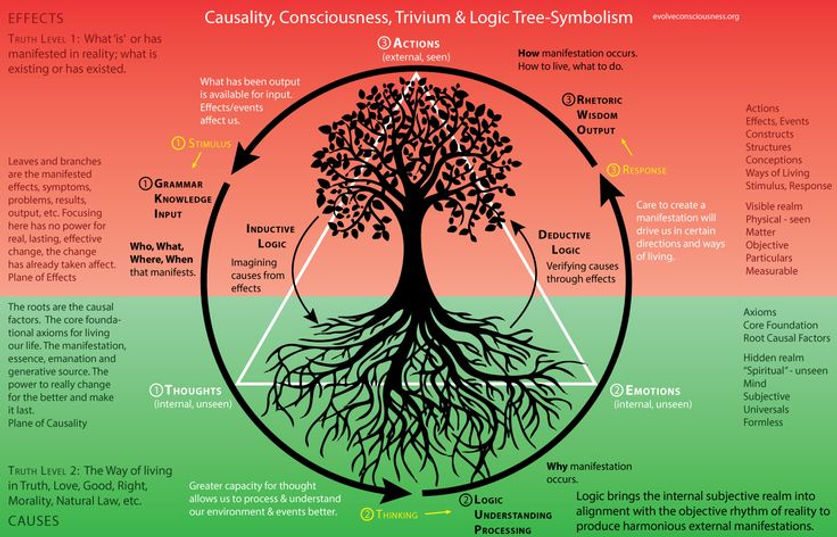
* AUTHENTICITY * LOVE * WISDOM * RIGHTEOUSNESS * COURAGE * FREEDOM *

Trivium
The Trivium is a path to mental sovereignty — the ability to think for oneself and seek truth without relying on institutional narratives. The Trivium is a mental defense system against manipulation and propaganda.
Most people never learn to think critically because modern education skips logic. Schools often teach rote memorization (grammar) and sometimes encourage regurgitation (rhetoric), but rarely teach how to reason (logic). Without the Trivium, people become vulnerable to mind control, fallacies, and emotional manipulation by authority figures, media, and political systems.
The Trivium is an ancient system of classical education focused on cultivating critical thinking and clear communication. It consists of three foundational arts:
-
Grammar – The art of knowledge
-
Logic (or Dialectic) – The art of reasoning
-
Rhetoric – The art of communication
These are not just school subjects — they represent a method of learning and thinking that builds in a specific order.
1. Grammar — What?
This is where learning begins. Grammar is about gathering raw data and knowledge.
-
In classical terms, it means learning the building blocks of a subject.
-
It includes vocabulary, definitions, rules, and facts.
-
Example: When studying biology, this is where you learn the names of organs, systems, species, etc.
Think of grammar as the input stage: absorbing accurate information and understanding it clearly.
2. Logic — Why?
Logic (or dialectic) is about processing the information you've learned and using reason to determine what is true or false.
-
It involves asking questions, examining contradictions, and evaluating arguments.
-
It teaches how to detect fallacies and recognize flawed reasoning.
-
Logic turns knowledge into understanding.
This is the processing stage, where the brain organizes, tests, and connects information logically.
3. Rhetoric — How?
Rhetoric is the art of expressing knowledge and understanding effectively.
-
It’s about clear communication, persuasion, and teaching others.
-
Rhetoric is not just about speaking well — it's about conveying truth powerfully and ethically.
-
A person trained in rhetoric can explain complex ideas clearly and convincingly.
This is the output stage, where you share what you've learned in a way others can grasp.
The Trivium isn’t just a curriculum — it’s a method of how humans acquire, process, and share knowledge.
-
Grammar (input) → Logic (process) → Rhetoric (output)
-
This applies not only to language, but to all fields: science, philosophy, history, politics, etc.



